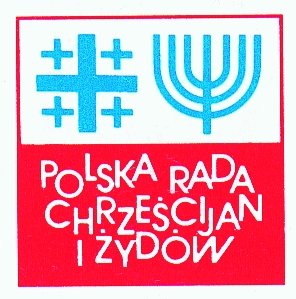Statement of the Polish Council of Christians and Jews
[Original version in Polish]
 In recent weeks, tensions have intensified in Poland that give rise to our deep concern. In public life -- and not only on its margins -- statements attacking Jews keep appearing. Among the most shocking was the sermon of Bishop Andrzej Jeż, who quoted the accusations from 100 years ago, suggesting that the Jews planned to fight the Church and that this may explain current Church problems. Since these accusations were spoken in the presence of a large number of priests, one may be justifiably concerned that they are a sign of approval for anti-Semitic attitudes such as those known from pre-war times. This raises understandable fears on the part of Jews, as well as among those who do not agree with basing social life on hatred.
In recent weeks, tensions have intensified in Poland that give rise to our deep concern. In public life -- and not only on its margins -- statements attacking Jews keep appearing. Among the most shocking was the sermon of Bishop Andrzej Jeż, who quoted the accusations from 100 years ago, suggesting that the Jews planned to fight the Church and that this may explain current Church problems. Since these accusations were spoken in the presence of a large number of priests, one may be justifiably concerned that they are a sign of approval for anti-Semitic attitudes such as those known from pre-war times. This raises understandable fears on the part of Jews, as well as among those who do not agree with basing social life on hatred.
An event that has been widely reported in Poland as well as worldwide is the return, in Pruchnik, to the folk custom of flogging the likeness of Judas. Regardless of the fact that encouraging children to hit a human shape with sticks is a highly dubious educational method, the problem is that the image was presented as a stereotypical Jew, thus encouraging the beating of Jews. It was of course symbolic but one cannot avoid the question as to whether it is not shaping a mentality that facilitates aggression in reality.
There exists a real problem that is being used as an excuse. Namely, the current tensions that arise from the protests against the American Act 447, the JUST Act, which requires the US government to report on property lost by Jews in Europe due to the Holocaust. It arouses great emotions in Poland.
The problem of restitution is however much broader and concerns not only Jews. The deaths of millions of citizens during the war and transfers of millions of people after the war created enormous legal difficulties. This was not handled correctly either immediately after the war or after 1989 by the Polish authorities.
We understand the concerns of Poles living in homes that once belonged to others because they imagine the loss they could suffer as a result of restitution. It is also known that there are many fraudulent attempts to take over property by unscrupulous agents claiming to be acting on behalf of alleged Jewish heirs.
A particular strong controversy concerns the issue of ownerless property. We believe that full compensation would be too much of a burden for Poland. However, we also believe that the failure to take account of the loss of property due to the wartime murder of entire families contradicts justice. Many decades have passed and there seems to be no perfect solution. Nevertheless, some solution must be worked out by all interested parties. Compromise decisions, such as symbolic compensation, are conceivable. It requires good will on both sides.
Our despondency is due to the fact that current reactions in Poland go beyond protestations based on self-interest and encompasss a comprehensive anti-Jewish attitude. We believe that this is unacceptable and brings to mind the least glorious periods of Polish-Jewish relations.
As Polish Christians and Polish Jews, we believe in a community that has shared biblical roots and a common life in our country. We appeal to politicians, clerics, journalists and other people who shape public opinion, to oppose behaviors that poison the atmosphere, promote hateful attitudes and blame Jews for all misfortunes. If current tensions and evil emotions continue to grow, unpredictable consequences threaten us all.
Signed by
The Executive Board of the Polish Council of Christians and Jews
Warsaw, May 14, 2019
Polska Rada Chrześcijan i Żydów: www.prchiz.pl
Please note:
The views, opinions, and conclusions expressed by the author of this article do not necessarily represent the views of the ICCJ, its Executive Board, or its national member organizations.
